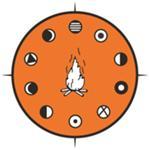Launch of research on the free and informed consent and imposed sterilization of First Nations and Inuit women in Quebec
WENDAKE, QC, May 17, 2021 /CNW Telbec/ - The Université du Québec en Abitibi-Témiscamingue (UQAT) and the First Nations of Quebec and Labrador Health and Social Services Commission (FNQLHSSC), in collaboration with several partners gathered within a regional committee, call on everyone to participate in research on free and informed consent and imposed sterilization, including obstetric violence, among First Nations and Inuit women in Quebec.
The research is launched jointly with the Council of Elected Women of the Assembly of First Nations Quebec-Labrador (AFNQL), Quebec Native Women, the Cree Women of Eeyou Istchee Association, the Regroupement des centres d'amitié autochtones du Québec, the Office of Senator Yvonne Boyer, the Nunavik Regional Board of Health and Social Services as well as the Cree Board of Health and Social Services of James Bay. The regional committee invites First Nations and Inuit women to testify on a personal experience or that of a loved one.
This research is part of the work of the Canada Research Chair on Indigenous Women's Issues at UQAT, led by Professor Suzy Basile. More specifically, this is the theme of the research of doctoral student in Indigenous Studies at UQAT, Patricia Bouchard. "This research takes place in a context where the Quebec government has chosen not to participate in the federal working group on forced sterilization of Indigenous women in Canada, underway since 2018, while we have come to the conclusion, in particular by the development of a literature review carried out by the Laboratoire de recherche Mikwatisiw of UQAT, that there is a glaring lack of relevant data on this topic in Quebec. In light of these facts, it seemed essential to us to compile a portrait of the situation in order to better understand it and measure its impacts," says Professor Basile. This research therefore aims to document this phenomenon and the circumstances in which these medical procedures might have been performed in order to identify certain trends, if any. It will also be an opportunity to give a voice to First Nations and Inuit women who may have experienced obstetric violence by allowing them to share their experience and traumas.
In the fall of 2020, a regional committee was set up in Quebec with Indigenous organizations and partner institutions to bring together organizations that may have a direct link with the people concerned by this research. The UQAT's Research Ethics Board evaluated the research in March 2021.
"Last year, the sad circumstances surrounding the death of Joyce Echaquan shed light on the acts of systemic discrimination experienced by First Nations and Inuit women in Quebec health institutions. In this sense, this research is of crucial importance; in addition to demonstrating the violence that our women, sisters and daughters might have suffered, it is a first step towards achieving healthier practices and quality services," indicated Marjolaine Siouï, Executive Director of the FNQLHSSC.
"Colonization has legitimized violence of all kinds against us, First Nations women. This dehumanization has even affected one of the most honourable roles a woman can play, that of being a carrier of life. These medical procedures were aimed at a slowdown in the First Nations birth rate and these decisions, sadly irrevocable, were imposed against the values of these women. Today, I hope that the wall of silence will be broken, because women will finally be listened to. The research will provide a portrait of what some of these women have been through in hospitals, and finally make the truth known."
Ghislain Picard, Chief of the AFNQL, reiterated his unconditional support and that of the Chiefs of the AFNQL for this important process.
Reception of testimonials
As of May 17 and until August 31, First Nations and Inuit women in Quebec who believe they have been sterilized without their consent or who have suffered obstetric violence are invited to share their testimonial in a confidential, respectful and safe space. It will also be possible to share, with their consent, the experience of a loved one.
For more information, including how to provide a testimonial, the method of research and the psychosocial support offered, visit imposedsterilization.cssspnql.com. More information to come will help support those who want to take these steps.
About the Canada Research Chair on Indigenous Women's Issues
The Canada Research Chair on Indigenous Women's Issues aims to highlight, document and map the experiences of Indigenous women from various parts of the world in matters such as governance, relations to the land, Indigenous and women's knowledge relating to the land and health.
SOURCE Assembly of First Nations of Quebec and Labrador

Catherine Bérubé-Leblanc, UQAT, Information Officer, [email protected], 819-762-0971, ext. 2079; Annie Brisson-Proulx, FNQLHSSC,Communications, Web and Social Media Officer, [email protected], 418-842-1540, ext. 2304; Alain Garon, AFNQLCommunication Advisor, [email protected], 418-254-4620

Share this article